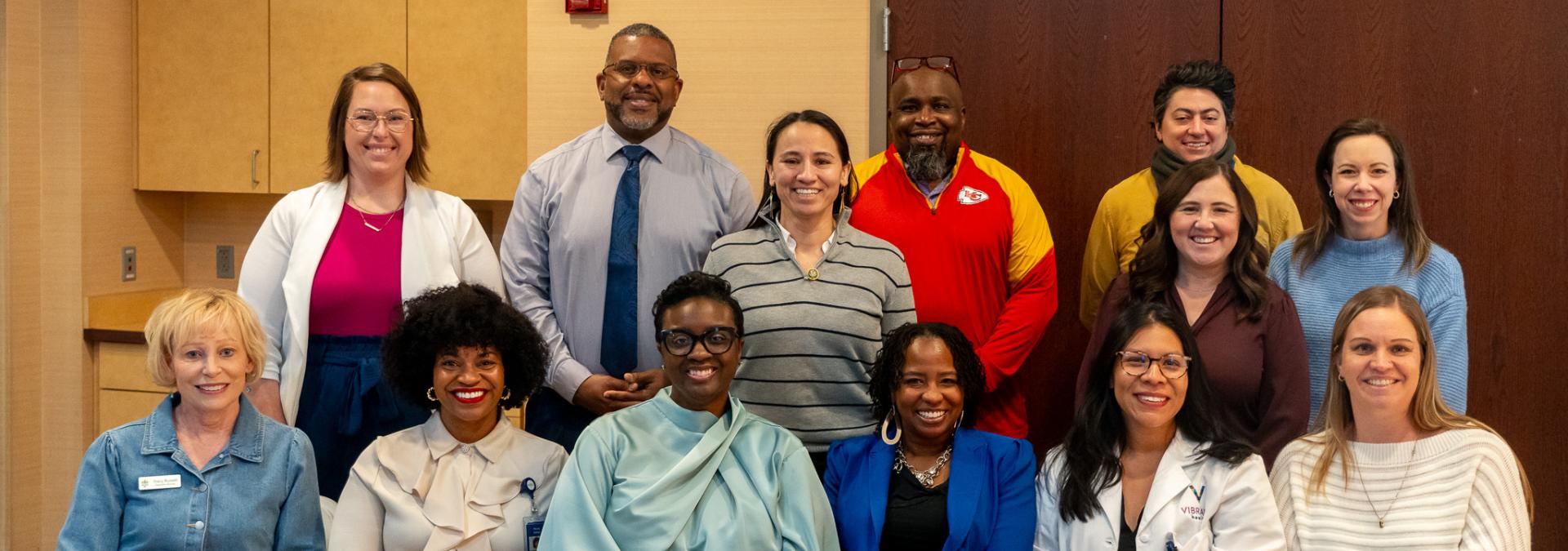During Black History Month, Davids Highlights Solutions to Black Maternal Mortality Crisis

Today, during Black History Month, Representative Sharice Davids joined local providers, health care advocates, and parents to discuss America's worsening maternal mortality crisis, specifically among women of color. Davids reaffirmed her support for increased research and attention to maternal health care and spoke on her legislation to improve data collection on maternal mortality and morbidity. Between 2016 and 2020, 105 Kansas women died while pregnant or within a year of pregnancy, with two-thirds of those deaths being women of color.
The United States is the only industrialized country with an increasing maternal mortality rate, and the crisis is most severe for people of color. Black mothers are dying at 3 to 4 times the rate of their white counterparts, and Native Americans are more than twice as likely to die from pregnancy-related causes. According to NurtureKC, this trend holds true for Kansas. Wyandotte County in particular has one of the highest maternal mortality rates in the state at 83.5 deaths per 10,000 live births.
“The U.S. is falling desperately short on the issue of maternal health, and frankly, it is shameful — but we can’t fix a problem we don’t fully understand,” said Davids. “I’m grateful to have the opportunity to listen and learn from Kansas physicians and mothers who are on the front lines of this crisis. Through conversations like the one we had today and legislation like my Data to Save Moms Act, we can take informed action and ultimately save lives.”
"Kansas has one of the highest Black maternal mortality rates in the first 42 days postpartum,” said Dr. Sharla Smith, Founder and Director, Kansas Birth Equity Network. “Rep. Sharice Davids was instrumental in allocating more than 2 million dollars to address these disparities. Community conversations are useful for identifying additional strategies to reduce these disparities."
At today’s event, Davids received a tour of Vibrant Health and led a conversation with health care professionals and Kansas mothers. Attendees included the Kansas Birth Equity Network, Kansas Maternal Mortality Review Committee, University of Kansas Medical Center, Nuture KC, and Dope Dads KCK. The group discussed maternal health trends in Kansas, impacts of the COVID-19 pandemic on maternal care, and supports needed from the federal government to help fight maternal morbidity.
Last year, Davids reintroduced legislation, known as the Data to Save Moms Act, to understand the root causes of this emergency by improving data collection on maternal mortality and morbidity. Maternal Mortality Review Committees (MMRCs) — consisting of various experts such as gynecologists, forensic pathologists, and community groups — operate in states and localities across the country to examine cases of death within a year of pregnancy. This legislation aims to improve their data collection and broaden the scope of maternal health research by:
- Establishing a grant program to promote representative community engagement in MMRCs in states across the country.
- Commissioning the first-ever comprehensive study to understand the scope of the Native American maternal health crisis.
- Providing funding to establish the first Tribal MMRC.
- Conducting a comprehensive review of maternal health data collection, emphasizing the importance of listening to the stories of pregnant people.
- Investing in maternal health research at Minority-Serving Institutions (MSIs), including Historically Black Colleges and Universities (HBCUs), Tribal Colleges and Universities (TCUs), Hispanic-Serving Institutions (HSIs), and Asian American and Pacific Islander Serving Institutions (AAPISIs).